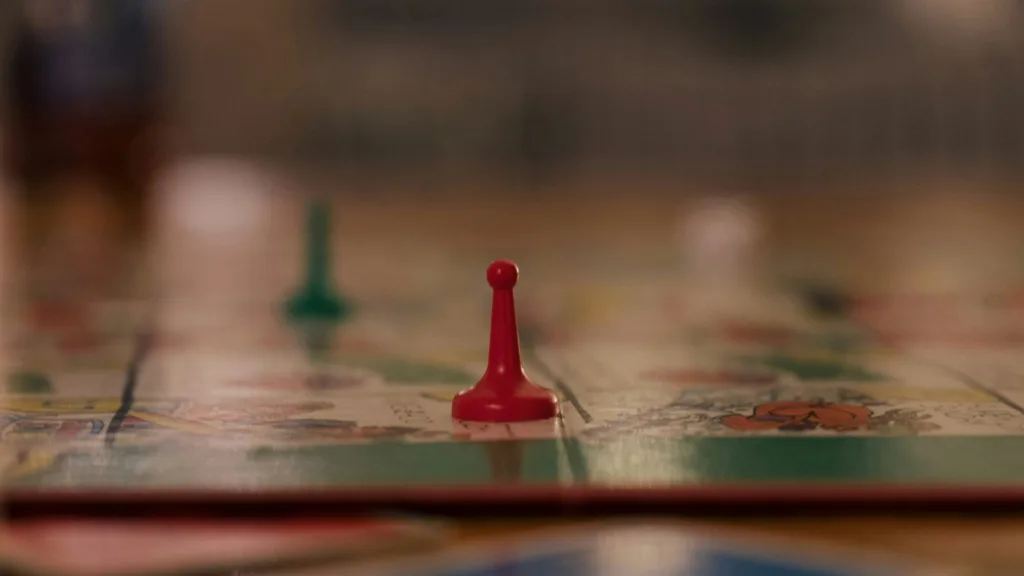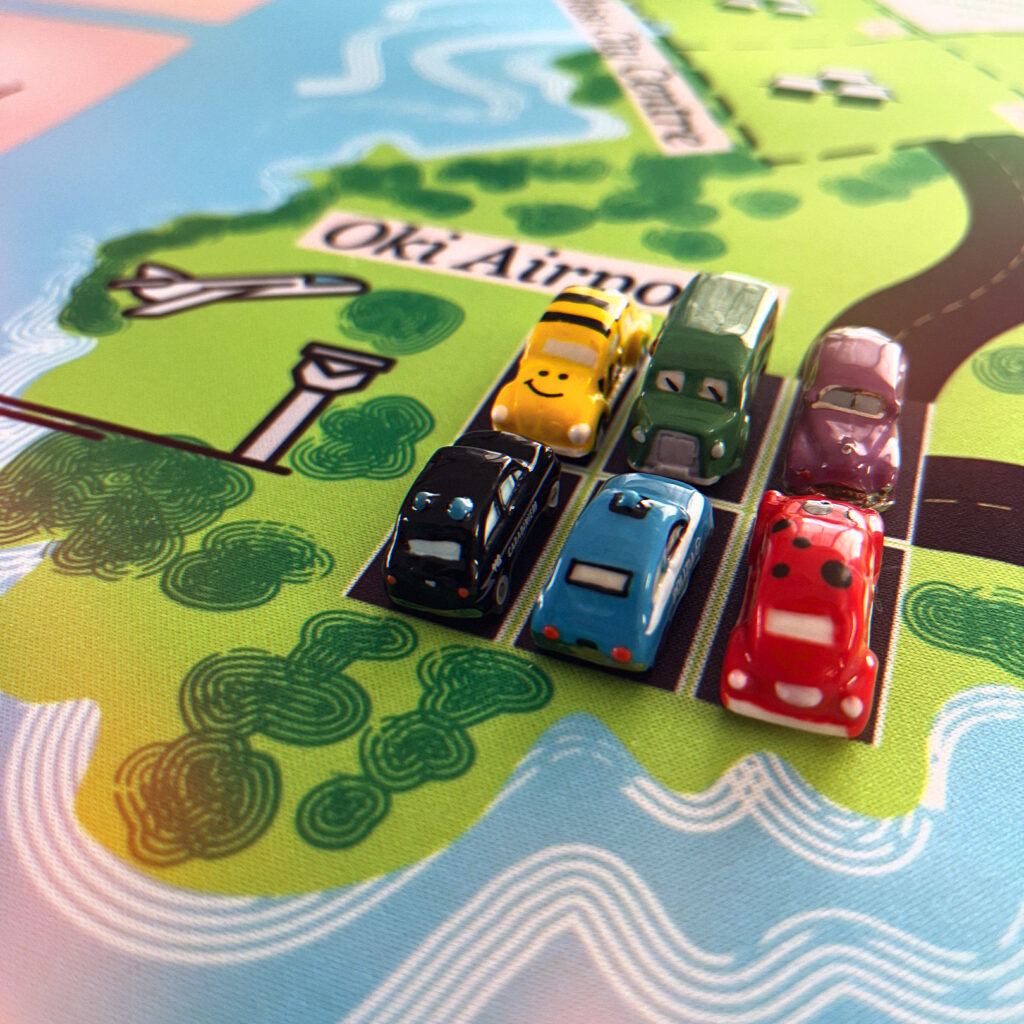This week’s @boardgameprotohype theme is Values, and I thought I’d reflect on on something I find important in the indie tabletop space. These musing started as a conversation with fellow designer Jake Thornton on the way back from a Playtest UK event a few weeks ago. Hopefully they resonate with a few of you!
Header image: Photo by Alfred Kenneally on Unsplash
“…what it is about the indie scene that enriches the wider gaming landscape for everyone?”
I’m sure many others, more eloquent than I, have discussed the challenges below. If you know of great articles or talks on the subject, please do share them in the comments. But for now, these are my thoughts.
The Uphill Battle for Indie Creators
The path for an independent game publisher or designer is fraught with challenges. Recent US decisions on tariffs, for instance, have only added more hurdles to an already high barrier of entry. Imagine an indie designer with a brilliant game idea. To bring it to life, they face a daunting series of obstacles, regardless of their chosen route. The sheer amount of time and money these creators invest, whether through Kickstarters or other publishing avenues, is staggering.
If you were to calculate the financial cost or the opportunity cost (time spent) of this investment, the numbers would be eye-watering. Creators often work for next to nothing and it’s clear to me that indie game publishers and designers need a better, stronger start, more support, and a clearer path to alleviate the immense pressures of bringing creative ideas to life.
Indie games creators often work for next to nothing… in other industries, ther’d be an outcry over the lack of fair compensation.
“Don’t We Have Enough Games Already?”
A common question arises: “With so many games out there, why do we need more?”, “The market is flooded”. It’s true, a visit to your local supermarket will reveal shelves stocked with games from major publishers like Ravensburger and Big Potato Games, catering to the mass market with high-quality products.
But what is a fundamental, often unseen, ingredient that contributes to the greatness of even these mainstream games? I believe it’s the influence of the indie scene. Independence empowers designers to explore uncharted territory, to push creative boundaries, and to develop games that might not be immediately commercially viable for larger companies. These could be niche titles, or games exploring mechanics and themes that appeal to a specific subset of players.
The magic happens when these diverse and innovative ideas enter the gaming space. They act as a catalyst, pushing us all to see what’s possible, even if an initial concept isn’t fully polished or realised. These new ideas propagate through the industry, subtly shifting the dynamics and ultimately feeding into the creation of higher-quality, more engaging, and even better games for the mass market. A vibrant, exciting, boundary-pushing, and well-showcased indie space makes the entire gaming ecosystem better.
In our discussions, Jake, also pointed out that those indie designer become a large proportion of the full time games designers of the future. It’s not just the ideas that percolate, it’s the designers themselves. In Jake’s words, “the indie design space is a sandbox for designers of the future”.
There are no losers here; only winners, as established designers and publishers are exposed to fresh concepts and working prototypes that spark new ideas about what’s interesting, acceptable, and novel in board games.
A vibrant, exciting, boundary-pushing, and well-showcased indie space makes the entire gaming ecosystem better.
A System Working Against Innovation?
The indie space is integral to a thriving, higher-quality mass-market games industry. If the indie scene falters, the dominant mass market will, in the long term, lose a vital source of quality and excitement.
Despite this importance, many aspects of the current system seem to work against indie creators. Crowdfunding platforms, while offering a route to market, can often be structured to primarily benefit the platform itself, rather than fully championing the creators.
Beyond the initial idea and even a successful crowdfunding campaign, the journey to a finished commercial product is immense. It demands a vast array of skills: in manufacturing, logistics, marketing, and more; that are hard to acquire, complex to manage, and can significantly distract from the core creative process.
A Vision: Cultivating a Supportive Ecosystem
This brings me to what I want to help build: a space that truly supports game designers in a way that perhaps doesn’t fully exist at the moment. This means practical support: with time, finance, and access to high-quality expertise that doesn’t cost the earth (or ideally, costs nothing at all). I envision a community-driven environment where, in the pursuit of creating new and exciting games, creators can find genuine support and even be compensated for their contributions.
If the indie scene falters, the dominant mass market will, in the long term, lose a vital source of quality and excitement.
As a first step, this blog serves as a vehicle to amplify those indie voices that are so crucial but often go unheard. My approach is proactive: not just waiting for people to come to me, but actively seeking out innovative indie games, pushing them forward, and supporting their creators in any way I can.
More broadly, it’s about figuring out how we, as a community, can collectively drive this space forward. How can we make it stronger, more diverse, and a place where more innovative ideas can flourish and achieve success?
The Reward and the Invitation
When these indie ideas do become successful, the reward for the creators who poured their time, effort, and money into them is immense. They can look back and see their passion and hard work validated. This is a long-term goal, but it’s one that absolutely must happen.
This brings me to what I want to help build: a space that truly supports game designers in a way that perhaps doesn’t fully exist at the moment.
If this resonates with you, if you want to be part of making this happen, please get in touch. I’d love to have conversations about how we can achieve this vision together. This is about building a community that is open to all, and it’s a community I am deeply invested in and genuinely excited to be part of. Let’s work together to ensure the vital spark of indie game design continues to illuminate the entire world of gaming.




Pingback: Diary #67 – Seasons – Master of Olympus